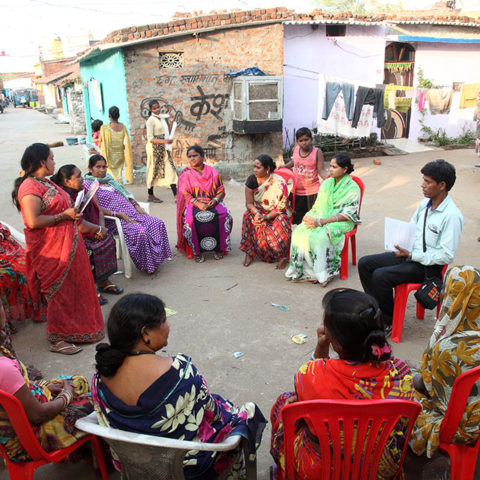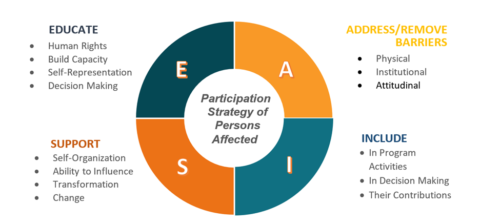
ILEP statement of commitment to the participation of persons affected by leprosy
This statement is also available in French, Spanish and Portuguese.
BACKGROUND
The involvement of communities and persons affected is not a new concept in primary health care and disease programs. Human rights-based approaches to NTDs, including leprosy, emphasise that any interventions should be based on the principles of participation, non-discrimination and accountability[1]. WHO has issued specific Guidelines for strengthening participation of persons affected by leprosy in leprosy services[2]. However, the active participation of persons affected by leprosy is not always a reality.
THE EASI STRATEGY
Engaging persons affected by leprosy is essential to the success of leprosy programs. Having experienced the disease, disability and associated discrimination, they have a unique voice and perspective, they bring passion to the work and take the programs closer to the communities they are designed to benefit. ILEP and its Members adopt the EASI strategy to ensure that persons affected by leprosy have the space and the support for meaningful and effective participation.

ILEP COMMITMENT
In relation to the EASI strategy, and within their sphere of influence, ILEP and its Member associations commit to work towards the following outcomes:
- Policy-making: Persons affected by leprosy are supported to participate in the development, monitoring and evaluation of leprosy-related policies, guidelines and preferred practices at all levels.
- Programs: Persons affected by leprosy systematically participate in all stages of leprosy programs from planning, to implementation, monitoring and evaluation. Their knowledge, skills, experience and connections are valued in these roles.
- Leadership, networking and sharing: Persons affected by leprosy are supported to take on leadership roles in self-care groups, support groups and other relevant local, national and international networks; to seek resources and build local capacity; to encourage participation of new members; and to share their experience with others.
- Advocacy: Persons affected by leprosy actively participate in advocacy for participation of persons affected, human rights, the removal of all discriminatory laws, regulations and practices and universal access to quality services that are fully integrated into strengthened local health systems;
- Public representation: Persons affected by leprosy are supported to actively participate at local, regional and global fora and to become spokespersons in leprosy and related campaigns or speakers at public events.
- Research: Persons affected by leprosy are supported to participate in the planning and execution of leprosy-related research
- Gender: Specific attention is paid to ensuring equal participation by women affected by leprosy in each of these actions
Download PDF
[1] A human rights-based approach to neglected tropical diseases. World Health Organisation, 2010 http://www.who.int/neglected_diseases/Human_rights_approach_to_NTD_Eng.pdf.
[2] https://apps.who.int/iris/bitstream/handle/10665/205169/B4726.pdf?sequence=1&isAllowed=y